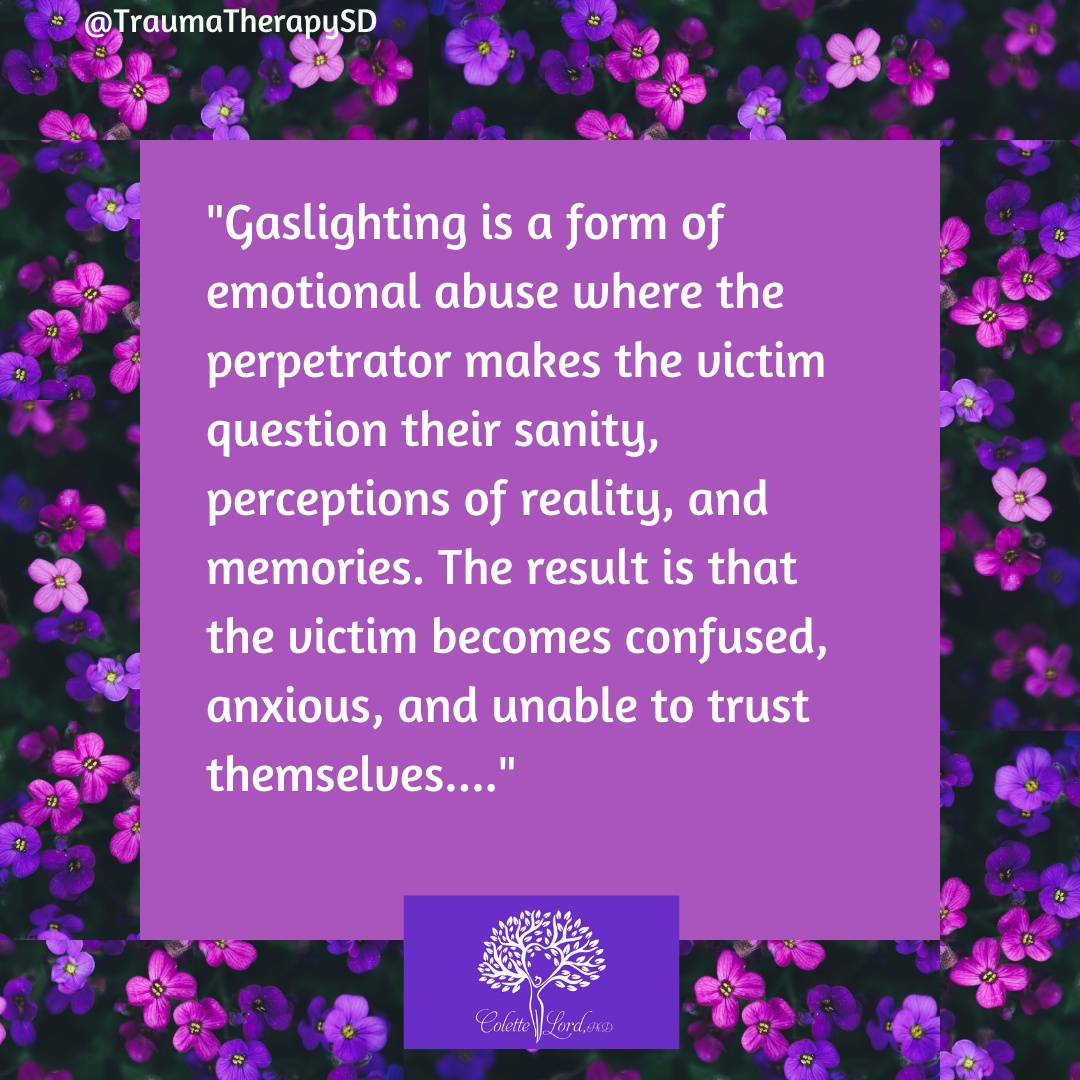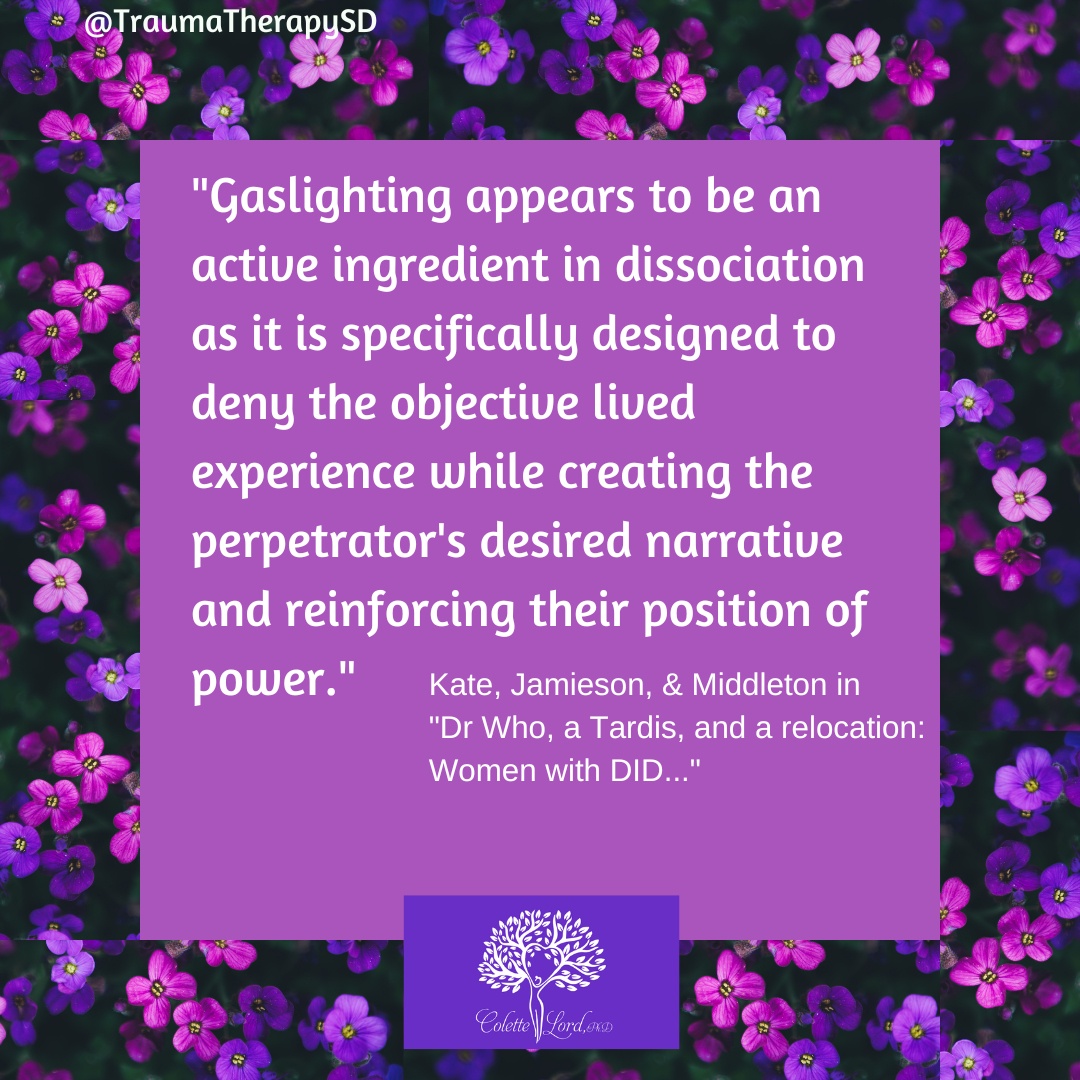Quote from Perspectives of Dissociative Identity Response: Ethical, Historical, and Cultural Issues
Merriam-Webster announced last week that they were choosing gaslighting as their word of the year for 2022. And this fits in perfectly into my discussion of dissociation.
This quote is taken from the book, Perspectives of Dissociative Identity Response: Ethical, Historical, and Cultural Issues. “Gaslighting is a form of emotional abuse where the perpetrator makes the victim question their sanity, perceptions of reality, and memories. The result is that the victim becomes confused, anxious, and unable to trust themselves. Gaslighting appears to be an active ingredient in dissociation as it is specifically designed to deny the objective lived experience while creating the perpetrator’s desired narrative and reinforcing their position of power.”
I think it is sometimes hard for people not in abusive dynamics to fathom just how damaging gaslighting can be, as it can be so very obvious. And in fact, that is why it can be so damaging. Because the victim often cannot fathom someone would do something so blatantly untrue, it leaves only one alternative explanation, that they are crazy, making it up, etc.
Gaslighting is absolutely abusive when done intentionally. And it is a common form of abuse used in toxic family dynamics. When an abuser says or does something in front of a person, and then immediately denies that they said or did that, it absolutely can make the person question their own sanity.
And it can still cause a great deal of harm when done unintentionally. This can often be seen with children if they are told they don’t actually feel a certain way or that they are lying when they are reporting on what others said or did. There are healthier ways to address issues that don’t involve undermining a child’s sense of trust in their perceptions of the world.
This type of psychological manipulation has the added effect of making the victim more dependent on the perpetrator, because if they can’t trust their own memories and perceptions, then who elses should they trust?
And when a dissociative disorder is present, it is very common for clients to distrust their own mental health, perceptions and memories as these may vary so greatly depending on which part of self is up front at the time. If there has been gaslighting in their attachment relationships, they may be even less likely to trust themselves or their experiences.












